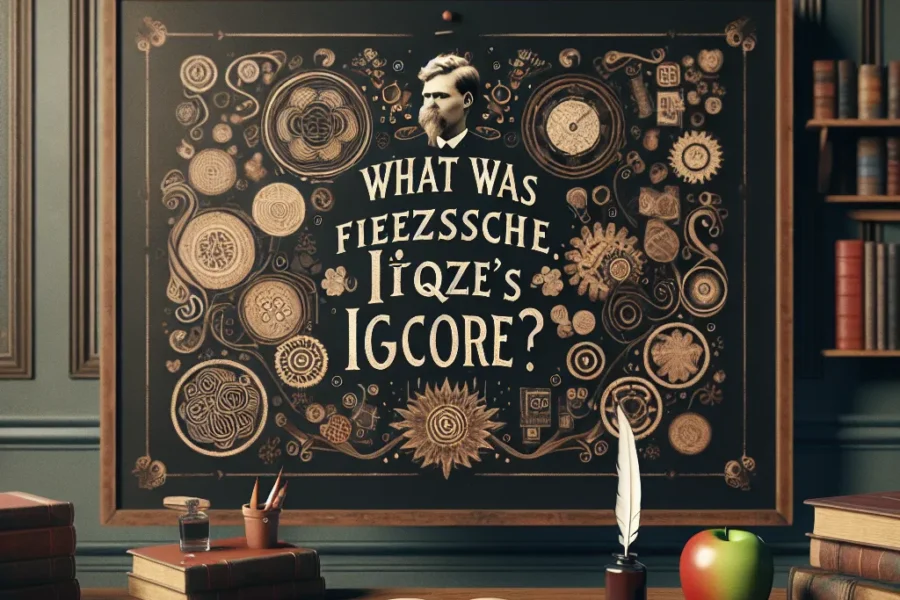Immanuel Kant is a name that resonates deeply within the corridors of philosophy and intellectual thought. Born in Königsberg, Prussia, in 1724, Kant is widely considered one of the central figures in modern philosophy. His ideas, particularly those articulated in works like “Critique of Pure Reason,” have profoundly influenced the intellectual landscape. Given his immense contributions, one question that frequently arises is: what was Immanuel Kant’s IQ score?
If you are looking for legitimate IQ Tests which pass the entry bar for Mensa, see our IQ Tests.
It’s important to make clear from the outset that the concept of Intelligence Quotient (IQ) as we know it today did not exist during Kant’s lifetime. Alfred Binet, the French psychologist who developed the first practical IQ test, was born in 1857, nearly a century after Kant. Therefore, any attempt to assign an IQ score to Kant would be speculative at best. However, this does not mean that we can’t explore the facets of Kant’s intellect that might give us some indication of how extraordinarily intelligent he was.
To evaluate Kant’s intellectual prowess, we must delve into his life, education, and the various accomplishments that distinguished him from his contemporaries. Kant was born into a modest family and attended the Collegium Fredericianum before enrolling at the University of Königsberg, where he initially studied the classics. His early years were marked by a voracious appetite for knowledge, allowing him to explore an array of subjects ranging from mathematics and physics to philosophy and theology. This multidisciplinary foundation provided Kant with the intellectual scaffolding that would support his later work.
One of Kant’s most significant contributions to philosophy came with his formulation of transcendental idealism, a theory that posits the structure of human experience is shaped by cognitive faculties. According to Kant, while we can know phenomena — things as they appear to us — we can never access the things-in-themselves, or noumena. This groundbreaking work required not just philosophical acumen but also a penetrating insight into human cognition and epistemology, displaying a level of intellect that would surely correlate with a high IQ.
If we were to speculate about Kant’s possible IQ score, we might begin by considering the attributes associated with high intelligence: analytical thinking, problem-solving abilities, and creativity. Kant demonstrated all these traits in abundance. He was renowned for his meticulous and methodical approach to philosophy. His work in metaphysics, ethics, and aesthetics consistently reflected an unparalleled ability to distill complex ideas into comprehensible frameworks. Moreover, Kant’s influence extended beyond his immediate field; he had a significant impact on subsequent thinkers like Goethe, Schiller, and Hegel, further testifying to his intellectual legacy.
But let’s dig deeper into the specific intellectual feats he achieved. Kant’s “Critique of Pure Reason” is often considered one of the most challenging texts in Western philosophy, requiring a sophisticated understanding of multiple philosophical traditions and logical constructs. The very act of synthesizing such a dense and comprehensive philosophy, particularly at a time when many of the foundational theories of modern science and psychology were yet to be established, would suggest that Kant possessed cognitive abilities far above the average.
In contemporary terms, an IQ score of 130 to 140 is often associated with “gifted” individuals, while scores above 160 are classified as “genius” level. Given the intellectual rigor, originality, and lasting influence of Kant’s work, many scholars speculate that his IQ would likely have been in the upper echelons of this scale. Though these are merely educated guesses, they are grounded in methodical analyses of his intellectual contributions.
Several modern metrics and historical assessments attempt to retroactively gauge the IQs of historical figures by analyzing their accomplishments, writings, and contemporary accounts of their intellectual abilities. Applying these methods to Kant, we find that his prodigious output, comprising not just quantity but also groundbreaking quality, strongly suggests an IQ in the “genius” range. His philosophical lexicon, the intricacy of his theories, and his methodological approach all point to a mind operating at peak efficiency and extraordinary depth.
Furthermore, Kant’s impact wasn’t limited to just one field. His “Critique of Judgement” delved into aesthetics, pioneering notions that would influence art and literature for generations. His ethical writings, particularly the formulation of the Categorical Imperative, have remained central to moral philosophy. Each of these works required different kinds of intellectual strengths: logical reasoning for his epistemological works, a nuanced understanding of human nature for his ethical writings, and a sensitivity to subjective experience for his aesthetic theories. The capacity to excel across such varied domains is a hallmark of immense intelligence.
Kant was not just a theoretical thinker but also an educator who devoted a significant part of his life to teaching. His pedagogical methods emphasized clarity, rigor, and a deep engagement with the material, characteristics which his students and contemporaries frequently lauded. The effectiveness of his teaching methods further underscores the practical application of his intellectual abilities, showcasing his ability to translate his high-level cognitive skills into comprehensible instruction.
Additionally, some anecdotal evidence from those who knew Kant gives us further glimpses into his intellectual capabilities. He was known for having a prodigious memory, an acute attention to detail, and a methodological approach to problem-solving. He developed a highly disciplined lifestyle that allowed him to dedicate extensive time to his intellectual pursuits. Such traits are often associated with highly intelligent individuals.
It’s also worth mentioning that Kant’s theories about human perception and cognition have found empirical support in modern psychology and cognitive science. His anticipation of several aspects of human cognition without the benefit of contemporary research methodologies is a remarkable testament to his intellectual foresight. This contextual understanding underscores not just his intellectual breadth but also his profound depth.
Despite the speculative nature of assigning an actual IQ score to Kant, what remains indisputable is that Immanuel Kant was a towering intellectual figure. His cognitive abilities, reflected in his prolific and influential body of work, would surely place him at the very high end of the intelligence spectrum.
In summary, while we may never know Immanuel Kant’s exact IQ score, an analysis of his life’s work strongly suggests that he possessed an extraordinary intellect. His contributions to multiple fields of human inquiry, from metaphysics and ethics to aesthetics and pedagogy, underscore a level of intellectual capability that few have matched. His groundbreaking theories, which continue to be the subject of study and debate, testify to a mind that operated well beyond the ordinary. Through a modern lens, it is not unreasonable to place Kant among those with genius-level intelligence, reflecting an IQ that would likely range between 160 and 180. However, the true measure of his genius is best appreciated through the enduring legacy of his philosophical contributions rather than a numerical score.



Leave a Comment